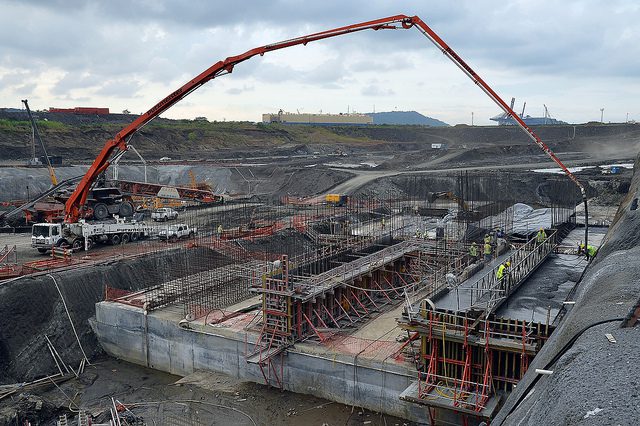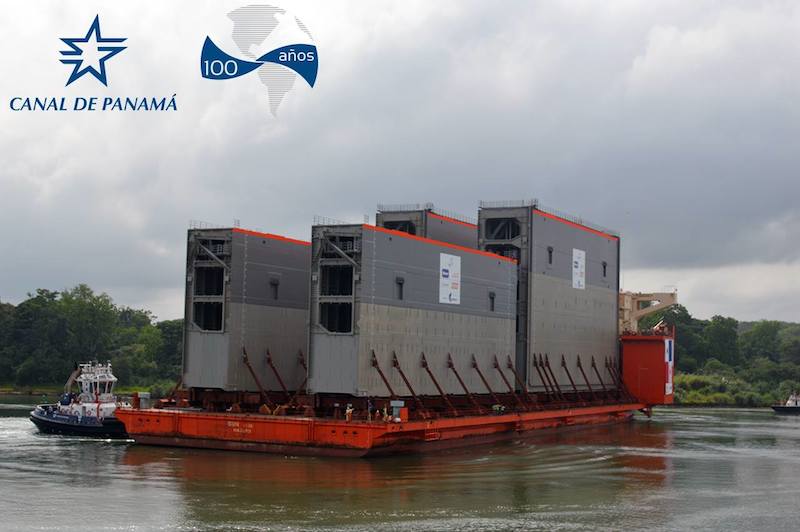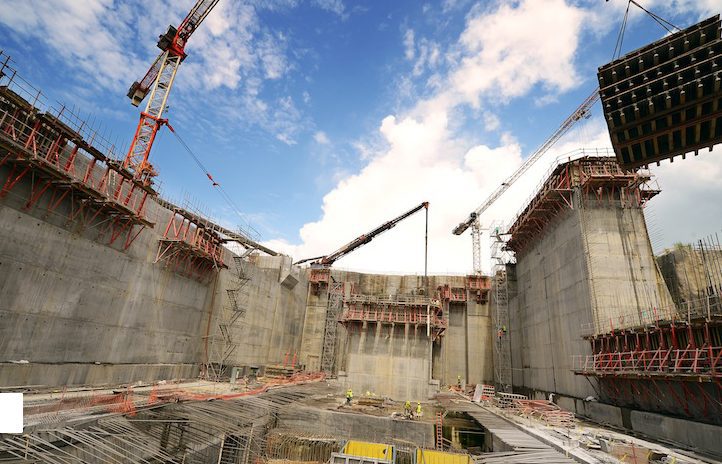(c) All rights reserved by Canal de Panama
 By Sonya Dowsett
By Sonya Dowsett
MADRID, March 14 (Reuters) – A construction industry consortium led by Spain’s Sacyr said in a statement on Friday it had signed a deal late on Thursday to complete work on the multi-billion dollar project to widen the Panama Canal, settling a long-running dispute over cost overruns.
Hold-ups on the massive engineering project, which involves the construction of a third set of locks, has left trading nations worldwide waiting anxiously to move larger ships through the waterway that links the U.S. Gulf Coast to Asian markets.
“The consortium … last night signed an agreement with the Panama Canal Authority (PCA) which will enable the continuation and completion of the work,” the statement said, adding the accord established the deadline for completion as December 2015, six months later than estimates given earlier this year.
The Grupo Unido por el Canal (GUPC) consortium, which also includes Italian company Salimi Impregilo, said project insurer Zurich was expected to sign the agreement later on Friday. This was the missing step for the deal to be wrapped up, said one source with knowledge of the matter.
An official close to the negotiations in Panama told Reuters on Thursday the Panama Canal Authority had signed a deal to end the dispute. Sacyr, the Spanish builder that leads the consortium, declined to comment on Friday.
The terms of the deal as laid out in the consortium’s statement on Friday were in line with the preliminary agreement reached in February.
The PCA and the consortium will each contribute $100 million to get the work back on track while the PCA will extend a moratorium on the refund of advance payments until 2018, freeing up funds to complete the work, the consortium said.
Under the terms of the agreement, a $400 million surety bond from Zurich will be used as backing to obtain additional funding, the consortium said. The consortium took out the bond as a required insurance policy in case it did not finish the project.
Twelve lock gates, under construction in Italy, will be delivered to Panama by the end of the year. Meanwhile, claims relating to unexpected costs will be resolved in international arbitration courts, the consortium said.
The GUPC consortium also includes Belgian firm Jan de Nul Group and Panama’s Constructora Urbana S.A. (Reporting by Sonya Dowsett; Editing by Sarah White and Greg Mahlich)
(c) 2014 Thomson Reuters, All Rights Reserved
Editorial Standards · Corrections · About gCaptain
This article contains reporting from Reuters, published under license.

 Join The Club
Join The Club











